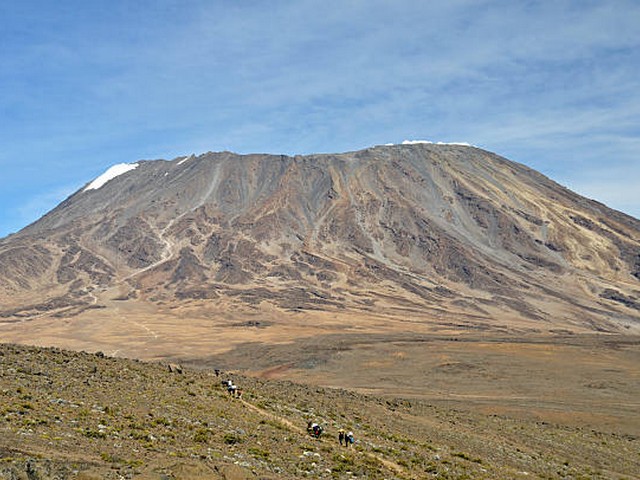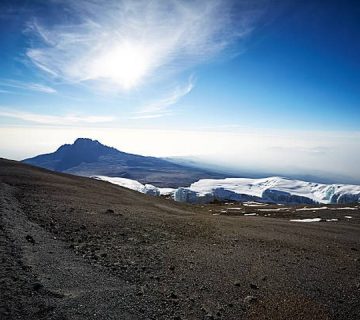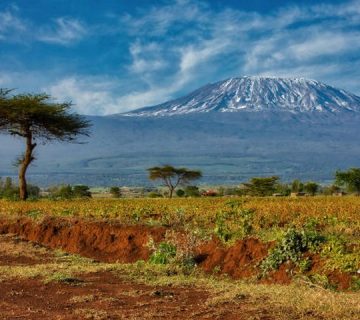Zero Waste Trekking Tours Kilimanjaro: Step Lightly on the Roof of Africa
Embracing the Beauty without the Footprint
In the heart of Tanzania, rising majestically above the African plains, stands Mount Kilimanjaro, the highest peak in Africa. For many adventurers and nature enthusiasts, conquering Kilimanjaro is a dream come true. However, as the guardians of this pristine wilderness, we at the Kilimanjaro Centre for Trekking and Ecotourism (KCTE) believe in more than just reaching the summit; we advocate for preserving its beauty through sustainability. Our Zero Waste Trekking Tours are designed not only to challenge and inspire you but also to ensure that we leave no trace behind, preserving Kilimanjaro’s magic for generations to come.
Why Zero Waste?
Zero waste is a philosophy that encourages the redesign of resource life cycles so that all products are reused, and no trash is sent to landfills, incinerators, or the ocean. In the context of trekking, it means carrying out whatever you carry in, choosing sustainable materials, and minimizing environmental impact in every step you take.
The Impact of Waste on Kilimanjaro
Mount Kilimanjaro attracts thousands of trekkers each year, which, while beneficial for local economies, poses a significant threat to the fragile mountain ecosystem. Waste, especially plastic waste, has become a pressing issue. It not only mars the natural beauty but also threatens wildlife and local water sources. Our Zero Waste Trekking Tours are crafted to tackle this problem head-on, ensuring that every trekker is part of the solution.
How We Achieve Zero Waste on Kilimanjaro
1. Pre-Trek Preparation
Sustainable Gear
We encourage all our climbers to use sustainable, reusable, and recyclable gear. From biodegradable soap to solar-powered gadgets, every item you carry should have minimal environmental impact.
Eco-Friendly Packaging
Say goodbye to single-use plastics! Our food packaging is eco-friendly, reducing waste right from the source. We provide meals in reusable containers, and all snacks are packed in biodegradable materials.
2. On the Trail
Waste Segregation
Even biodegradable waste can be harmful in the wrong environment. We practice and teach proper waste segregation on the trail, ensuring organic and recyclable waste are dealt with appropriately.
Water Purification
Instead of plastic water bottles, we use water purification methods that are safe and efficient, reducing plastic waste and keeping our trekkers hydrated without harm to the environment.
3. Post-Trek Accountability
Waste Auditing
At the end of each trek, we conduct a waste audit. This helps us measure our impact and continually improve our zero waste strategies.
Community Involvement
We work closely with local communities to ensure waste from the treks is managed sustainably, providing training and resources to aid in proper waste disposal and recycling.
Benefits of Zero Waste Trekking
For the Environment
Zero Waste Trekking significantly reduces litter, lowers greenhouse gas emissions, conserves resources, and protects wildlife.
For the Community
Sustainable tourism ensures that local communities can thrive not just today but into the future, preserving their heritage and natural landscapes.
For You
By choosing a Zero Waste Trek, you become a part of something bigger than yourself. You experience the profound satisfaction of knowing that your adventure helps protect the very beauty you came to see.
Join Us on a Zero Waste Kilimanjaro Adventure
Our Zero Waste Trekking Tours Kilimanjaro are not just about reaching the summit; they’re about making a positive impact. When you book your climb with Kilimanjaro Centre For Trekking and Ecotourism (KCTE), you choose to trek responsibly. You choose to protect the splendor that is Kilimanjaro.
Embrace a journey where every step counts. Join us in treading lightly on the roof of Africa. Together, let’s keep Kilimanjaro pristine, one expedition at a time.
FAQs
Q: What should I pack for a Zero Waste Kilimanjaro Trek?
A: Focus on reusable items such as metal water bottles, solar chargers, and clothing made from natural fibers. Avoid single-use plastics at all costs.
Q: How difficult is a Zero Waste Trek compared to a regular trek?
A: The physical challenge is similar, but Zero Waste Treks require a bit more preparation and mindfulness. However, the satisfaction of minimizing your environmental footprint makes it incredibly rewarding.
Q: Are there any additional costs involved in Zero Waste Trekking Tours?
A: No, there are no additional costs. In fact, by minimizing waste and using sustainable resources, you might find it more cost-effective in the long run.
Q: Can families participate in Zero Waste Treks?
A: Absolutely! Zero Waste Trekking is an excellent way for families to bond over shared values and experiences. It’s an educational adventure that kids and adults alike will treasure.
Q: How can I book a Zero Waste Trekking Tour to Kilimanjaro?
A: Visit our website or contact Kilimanjaro Centre For Trekking and Ecotourism (KCTE) directly. We’ll help you plan your sustainable adventure every step of the way.
Ready to Make a Difference? Book Your Adventure Today!
Step up and step light on one of the world’s most iconic mountains. Join us at Kilimanjaro Centre For Trekking and Ecotourism (KCTE) for a Zero Waste Trekking Tour to Kilimanjaro that you’ll never forget. Book your climb now and be a part of preserving Kilimanjaro’s natural heritage. Together, we can make a world of difference.




